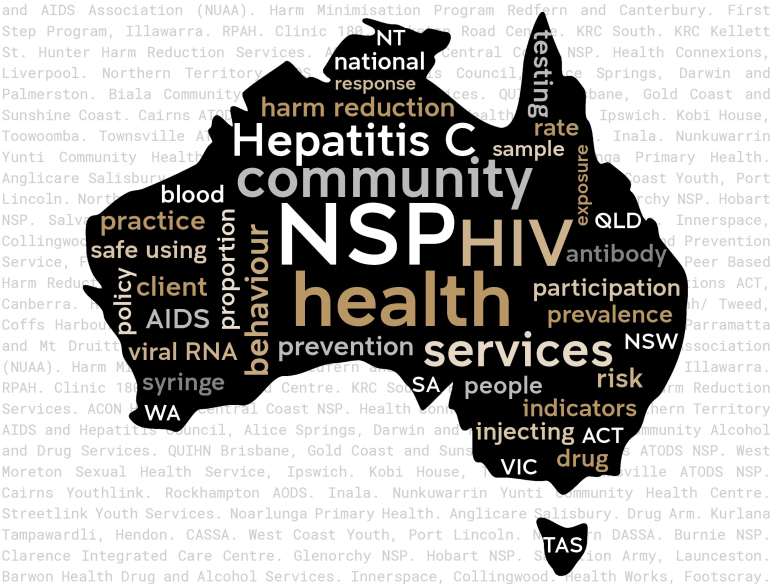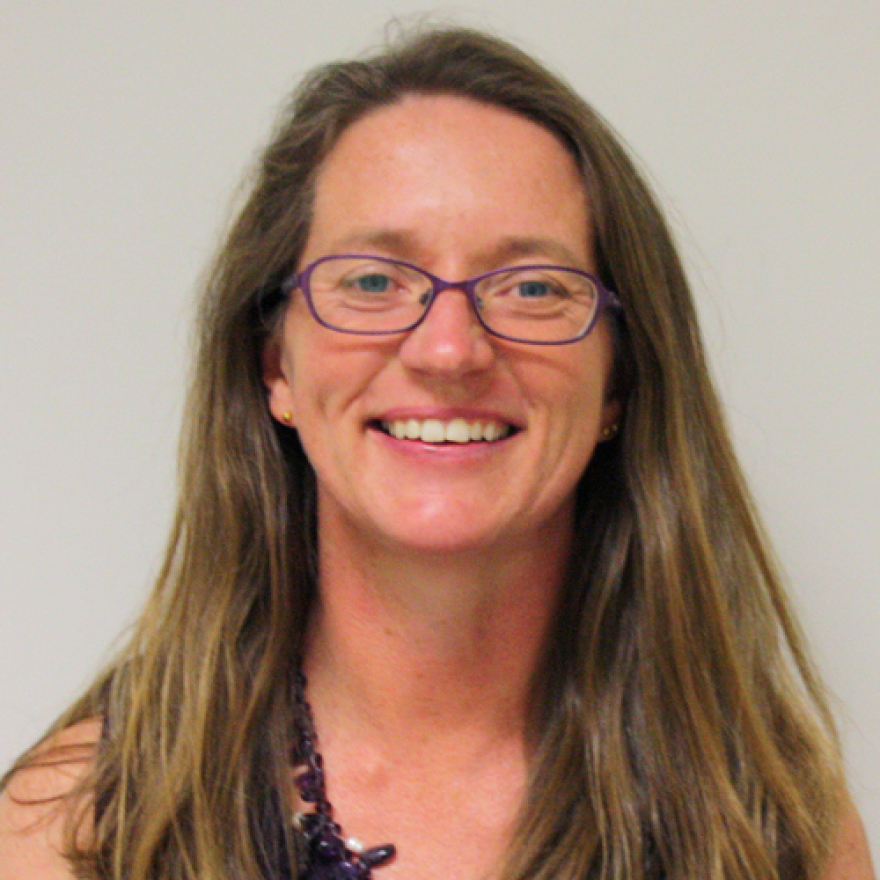- In 2023, 55 Australian Needle Syringe Programs (NSPs) participated in the ANSPS and 1,991 NSP attendees completed the survey. The response rate was 37%.
- As a sentinel surveillance system with the capacity to respond to emerging issues, the 2020 – 2023 surveys included a module about COVID-19 related impacts, including vaccination uptake. In 2023, 80% of respondents reported receiving at least one dose of a COVID-19 vaccine, including 48% reporting three or more doses and 26% reporting two doses.
- HIV antibody prevalence remained low and stable nationally, ranging from 1.5% to 2.5% over the period 2019 to 2023.
- HCV antibody prevalence declined from 45.5% in 2019 to 44.8% in 2023, while the proportion of respondents with detectable HCV RNA declined from 18% in 2019 to 12% in 2023.
- Among respondents assessed as eligible for HCV treatment, the proportion who reported a lifetime history of HCV treatment increased, from 64% in 2019 to 75% in 2023.
The Australian Needle Syringe Program Survey (ANSPS) provides serial point prevalence estimates of human immunodeficiency virus (HIV) and hepatitis C virus (HCV) (antibody and RNA) and sexual and injecting risk behaviour among people who inject drugs (PWID) attending needle syringe programs (NSPs) in Australia.
Conducted annually over a one-two week period, all clients attending participating NSPs are invited to complete a brief, anonymous questionnaire and to provide a capillary blood sample for HIV and HCV antibody and HCV RNA testing. Between 2020 and 2022 the survey was affected by the COVID-19 pandemic with a reduced number of respondents participating compared to previous years.
This report presents national and state/territory data for the period 2019 to 2023.


